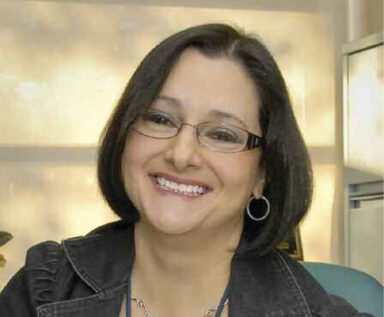PTSD: A Physician’s Perspective
- By Trudie Mitschang

DR. ALINA SURIS is chief of psychology, mental health at VA North Texas Health Care System (VANTHCS) in Dallas. Last year, Dr. Suris and a team of researchers conducted two pilot studies exploring new ways to treat soldiers suffering from post-traumatic stress disorder (PTSD). Preliminary results show researchers were able to successfully interfere with traumatic memories at the cellular level, essentially altering the way individuals react when disturbing memories surface. While still in its infancy, the research holds promise; Dr. Suris has applied for grants from the Veterans Administration and the Department of Defense to conduct larger randomized trials. In October, Dr. Suris was the recipient of the George Winokur Research Award for her studies with PTSD.
BSTQ: Your research at the VANTHCS suggests doctors may one day be able to cure PTSD by erasing fears from a patient’s mind. Tell us about that.
Dr. Suris: We’re not erasing memories; we’re quieting the emotions associated with those memories. You’ll still have the memory, but your emotional response to that memory won’t be so debilitating. For somebody with PTSD, they’ll be able to remember their traumatic event, but it won’t be overwhelming to them anymore.
BSTQ: Tell us about the role cortisol played in your research findings.
Dr. Suris: We know that when a traumatic memory is triggered, something happens at the cellular level. There’s a chemical response that involves cortisol, a steroid hormone that is released by the body in response to stress — your heart may start to race, your palms may get sweaty. Veterans with PTSD have trouble mounting a cortisol defense to help them deal with memories that get triggered by certain cues, so our study posed the question: “What if we could interfere with that chemical response and intercept it before it really gets going?” We believe that by giving oral steroids, we may be able to supplement what the body needs to handle the traumatic memories in a more constructive way.
BSTQ: How was the study performed?
Dr. Suris: In one study, we asked veterans to write down their most terrifying battlefield experiences, the ones that inspired nightmares and invaded their daily thoughts. Those written memories were then reduced to a 30-second script that describes what happened and what the veteran was feeling in the moment. During a follow-up visit, we had them relax in a comfortable chair while wearing a headset. We administered either a glucocorticoid — a steroid medicine — or a placebo, and after a few minutes, played them an audio recording of their memory to see how they’d react.
BSTQ: What were the study’s findings?
Dr. Suris: Veterans who received the steroid expressed significantly fewer PTSD symptoms, while those who were given a placebo continued to have significant symptoms such as avoiding places, people, activities or thoughts that reminded them of their trauma.
BSTQ: Can you explain the relationship between trauma and memory?
Dr. Suris: Research shows that when people have a trauma, that memory gets laid down in your brain. Then, every time you think about that memory, all those neurons and all those chemicals get excited again. And, when you’re done, that memory gets laid down in the memory again. In people without PTSD, the emotions accompanying a memory eventually fade. But for people with PTSD, the emotions don’t fade and may even become more terrifying as time goes on.
BSTQ:The two most common therapies for treating PTSD are cognitive processing therapy and prolonged exposure therapy. What’s the advantage of this new approach?
Dr. Suris: These are good, evidence-based therapies, and they are the best we have right now. But, what if 30 seconds and a pill would be just as effective? It would be quick, efficient and economical. Most important, it would likely be more palatable to veterans because of significantly less demand on their time in therapy.